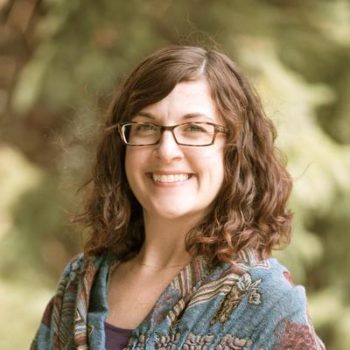 NOV. 21, 2014—As people get older, they often try to come to terms with their lives. They may ask themselves, what happened along the way and why?
NOV. 21, 2014—As people get older, they often try to come to terms with their lives. They may ask themselves, what happened along the way and why?
Aging may also come with new and different challenges, like the loss of independence or a debilitating illness. Research suggests that spirituality can help. At a recent meeting for the Gerontological Society of America, KALW’s Rachel Dornhelm spoke with Lydia Manning, associate professor of Gerontology at Concordia University, about spirituality and aging in older adults.
DORNHELM: How did you get interested in the subject of aging?
MANNING: I had an experience when I was young, I was very close to my grandmother who ended up in a nursing home when I was seven. So from the ages of seven to about 14 or 15, I spent a lot of time visiting with her. As a result I had many friends who were actually residents in the nursing home. I realized early on that I had a connection, interest, and a fondness for being around and working with older adults.
DORNHELM: So what was your dissertation topic and what are you researching now?
MANNING: For my dissertation topic I interviewed women in late, late life. All of the participants were over 85 years old. I was very interested in their spiritual experiences and how that factored into late, late life and approaching death. How they were making meaning as they approached their end of life?
From that, I realized there was something happening with spirituality and resilience. The women I talked to described having the ability to withstand profound hardship and adversity, particularly in late, late life. In many ways their spirituality was a buffer and a tool.
DORNHELM: Were these people who always self-identified as spiritual?
MANNING: The women I talked to for my dissertation were all 85 and over, and for most of them spirituality reflected some kind of continuous narrative in their lives.
DORNHELM: I’m curious how you define spirituality in your work.
MANNING: With the women I interviewed, I came to the table with a broad definition rooted in the (scientific) literature. It was:
1. Intense awareness of the present 2. Transcendence of the personal self 3. Feeling of connection with all of life, the Universe or a Supreme Being
Of course, there are so many different ways to define spirituality. I just think of it as connection to something bigger or greater. Or the Other, big O.
DORNHELM: You mentioned the literature. What does the scientific literature say about spirituality and aging? Are there any interesting correlations or trends?
MANNING: There are positive correlations between religion and well being. Higher levels of religiosity often indicate higher levels of subjective well being and happiness, and (better) health outcomes.
There are a lot of mechanisms operating there. If you have a population that is pretty dedicated to church attendance, for example, and identify as religious, maybe there are other behaviors that complement that lifestyle. Maybe less smoking, less risky behavior. If you look in the literature, the relationship between positive outcomes in later life, and higher levels of spirituality and religion, are still mysterious.
DORNHELM: What to you are the most interesting points of inquiry to follow up on?
My work has been focused on positive association and experiences. I do think there is room for looking at trauma related to religion or spirituality, and how that impacts people later in life.
And I think it would be interesting to look at cohorts of Baby Boomers. How many conversions and reconversions have they had? (If they’ve gone away from religion) do they identify as spiritual later in life?
DORNHELM: Is there anything else we should be thinking about with respect to spirituality and aging?
MANNING: In the world of scholarship and the academy we are quick to make assumptions. So even if academicians or providers aren’t religious, it is important to offer a space for older adults to be spiritual beings, if that is important to them. Especially in medical care. If you’re dealing with end of life issues, and someone is asking you to meet them in a spiritual place, it’s important for providers to honor and remain open to that.
Rachel Dornhelm produced this interview through a Journalism Fellowship from New America Media and the Gerontological Society of America, supported by AARP. The interview was edited for clarity.
Published on Nov. 21, 2014
The Spiritual Edge is a project of KALW and the Templeton Religion Trust. We’d love to hear your suggestions on what we should be covering. Leave us a comment or email us at [email protected].


